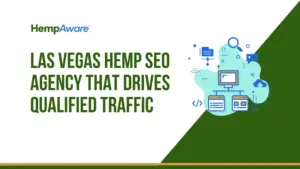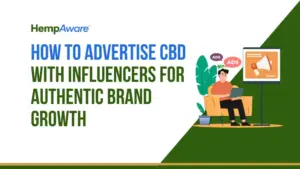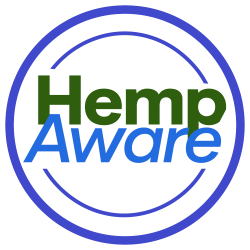Understanding the Split: Agencies in Marketing Hemp and Cannabis
Let’s draw back the veil on a topic that often trips even seasoned entrepreneurs: how hemp and cannabis marketing companies really differ, and what distinguishes a solitary supplier from the best cannabis marketing agency in the game? This is your road map if you have ever been trapped in a whirl of jargon trying to identify someone to make your brand stand out.

Though botanically somewhat similar, cannabis and hemp demand quite different marketing strategies. With each of their own patchwork of regulations and vibrant, colorful subcultures, cannabis agencies band together around marketing psychotropic items, flavored vapes, THC gummies, and more. Generally speaking, hemp marketing firms focus on hemp-derived goods including CBD oils, textiles, cosmetics, even pet items. Although they travel over somewhat less dark regulatory seas, rules and restrictions exist.
What Generates Two Markets for Marketing?
Molecular level, the difference begins with THC content. While cannabis regularly overshoots that limit, hemp has less than 0.3% THC. Two sets of legislative constraints and societal attitudes are set off by this fractional difference. For those in marketing, this is a road fork. A campaign focusing on hemp rarely encounters the severe suppression cannabis content suffers. That makes ad placement, SEO, influencer relationships, and even packaging copy into two distinct games.
Creating a national online CBD campaign, for instance, could feel like a rather challenging puzzle given federal approval and a few localized speed blocks. Pulling out THC edibles entails negotiating the quicksand of geofencing, dodging TikHub restrictions, and reacting to daily algorithm changes. It might occasionally feel like herding cats.

Meanwhile, hemp companies typically use mainstream wellness content, scientific-based health claims, and lifestyle branding that would not seem out of place next to skincare or supplement commercials.
Important Service Comparisons between Marketing Agencies for Hemp and Cannabis
If you are looking for an agency, you will soon find numerous with both hemp and cannabis flags waving. Give them five minutes, though, and you will see how dramatically the tools and approaches vary based on whether the main product is psychoactive.
Potential for Advertising and Platform Availability
Google Advertisements Facebook Business Suite is Tales on Instagram. These tools welcome hemp businesses, with well-written ad material and compliance landing pages opening the path to success. Sadly, cannabis enterprises are behind a velvet rope. Most systems outright forbid THC-related advertising.
Agencies catering to cannabis users act creatively right away. They use brand ambassador programs, underground events, guerilla street marketing, and organic content. They bargain with specialty review sites or “green-friendly” magazines. If only to avoid the never-ending “This Ad Was Rejected” letters, contacts with influencers become worth their weight in gold.
Conversely, hemp marketers draw on more conventional digital marketing strategies. They look at paid advertisements, brand relationships with wellness bloggers, and occasionally even DTC subscription models. Pressing the “Boost Post” button releases some sort of relief.
Regulatory Compliance
Although cannabis marketing firms end up more like legal jugglers, regulatory compliance is not optional for any industry. Every state may have completely different rules your way: one may mandate medical disclaimers, another may forbid specific testimonials, while still others limit all paid sponsorships. California laws: Not as Maine’s or Oklahoma’s.
Hemp companies deal with a smaller range of limitations. The FDA still gives a strong handshake on avoiding false health claims, and some states control CBD propaganda more than others. Still, it’s milder ground than the THC hair-trigger atmosphere. Agencies focused in cannabis nearly always keep full-time legal specialists or advisors, updating campaign language faster than most companies demand.
Differences in Design and Audience
THC-centered brands gravitate for counterculture, rebellious attitude, and visual narrative that yells. Think of bright graffiti, shining music festival booths, edgy comedy hidden throughout every meme. Agencies for these firms probe social trends, leverage street energy, and employ guerilla PR from great depths. Even packaging can be a sophisticated statement that draws a generation attracted to “disruptive” design ideas.
Herb? An altogether distinct sound. The natural, whole health realm provides inspiration for marketing most of the times. The backbone is earthy tones, soft images, hashtags about health travels, and quotes from regular users. Though occasionally overlapping, the audiences often consist of more wellness aficionados, frequent supplement users, older folks, and an always interested general audience.
Who Drives Success—Full-Service Against Niche Agencies?
Look up a “cannabis marketing agency” online. Although the list is large, selecting between a specialist company and a one-stop shop can cause analytical paralysis. While some organizations want agencies with a finely tuned toolkit for one sliver of the market, others want a team performing a symphony on every instrument.
What Defines Full-Service in Hemp and Cannabis?
Strategy, branding, web design, social media, email marketing, influencer management, performance marketing, and—above all—compliance checks on every campaign asset imply soup to nuts. These companies create brands starting with logo design and working through conversion funnel. Consider them as directors of films, handling casting, lighting, set design, and editing under one roof.
Niche firms focus on one area—SEO, events, Instagram expansion, packaging design. That strategy works if you already have internal talent or want control in one channel. But assembling ten experts is like creating a band from Craigslist ads—you might strike a few great notes, but you should expect the occasional train crash.

The Human Side of Choosing a Partner for Cannabis Marketing
Trust is irresistible. Easier to deal with are marketers who really “get” your brand, who laugh at the same jokes, and who track the trends influencing dispensary operations. Ask agencies they have dealt with. Talk about past launches on the grill. Keep looking if they fumble over jargon or find it difficult to explain why a campaign failed.
Good agencies grow out of your staff like extensions. They prod you back from misguided trends, pick up phones at strange hours, and examine every element of your creative output. The ones that are best are they quickly applaud your successes as though they were their own procession and own faults.
Reports on transparency and responsibility matter. Marketing in both hemp and cannabis has always followed costly blind paths. Clear ROI tracking, monthly reporting meetings, demanding transparent dashboards—these are the variations between groping your way over the dark and carrying a flashlight.
When the business throws another curveball, a respectable cannabis marketing agency will own when an advertisement fails or turns around. Steer clear of someone who hides responsibility or boasts constantly about “hacking” the most recent algorithm.




